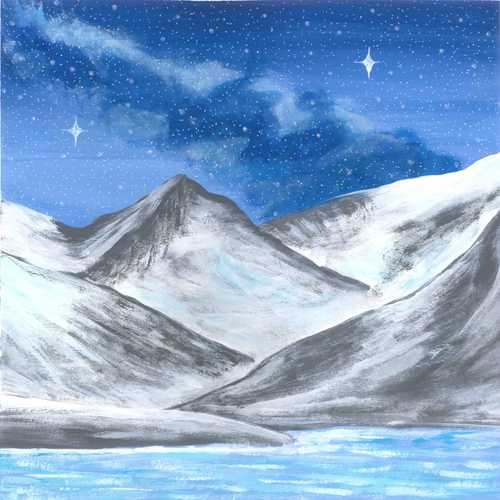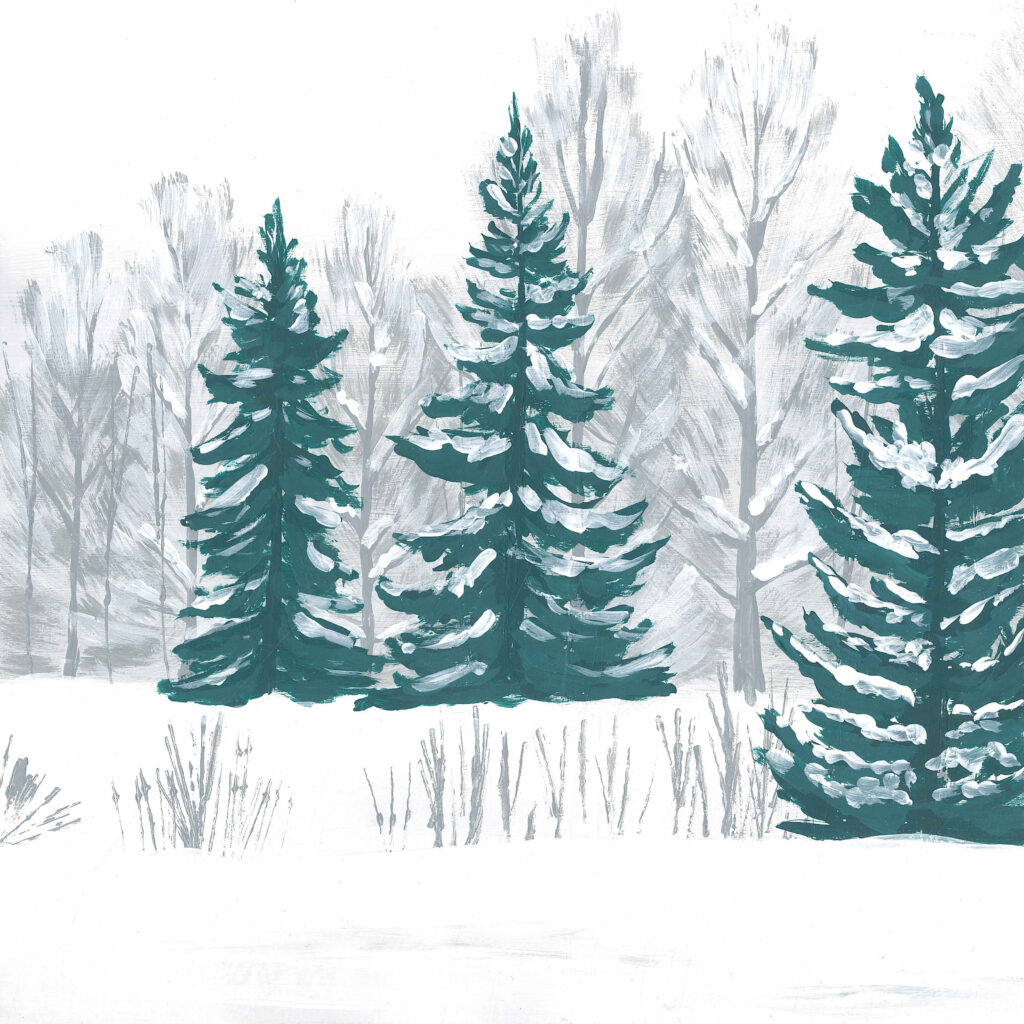
Seasons greetings, soundscape fan. 🎄
Welcome to the last newsletter of the year – but don’t worry, we’ll be back, bright-eyed and bushy-tailed, in 2023. 🎊
Read on for today’s round-up of material from Earth.fm and beyond, including tips on how to talk about climate change to skeptics, an answer to why humans need open space, and the ethics of receiving gifts.
Soundscape of the week
‘Windy Night Quietude at Deep Creek’:
The Christmas period is either the most wonderful time of year or one you’d most prefer to hibernate through. Either way, it’s a lot: the inevitable frenzy of last-minute shopping; overcooking the sprouts; consuming your bodyweight in chocolate; racing to the bottom of the sherry bottle…
But fear not; with this recording, Earth.fm can provide you with the gift of 44 minutes and 16 precious seconds of respite. Recorded by Khristos Nizamis at the Deep Creek National Park in South Australia, this soundscape consists of “the gusty wind in the trees, and nothing else”. As it rustles through the eucalyptuses and grass trees, this “natural soundscape minimalism” will calm and re-center you just in time for that traditional, never-ending game of Monopoly.
Articles and essays
❄️ In the self-explanatory ‘Winter Playlist’, Wind Is the Original Radio, the Earth.fm podcast, compiles “winter soundscapes from both hemispheres”, from melting snow to the sounds of campfires and icebergs.
You can check out existing episodes of Wind Is the Original Radio on Apple and Google Podcasts, Spotify, and Stitcher, and new ones are released every Friday.
👂 ‘On Hosting an AudioBlitz’: Vermont-based author, photographer, audio producer, and educator Dr Steven Shepard recently attended a bioblitz: a “24-hour period [during which] participants do everything they can to identify as many different species as possible within a predefined geography”.
The participants at this specific event, near Vermont, were mainly children whose “level of wild enthusiasm […] was infectious”, while “the extent to which the volunteer scientists were willing to share their knowledge was heartwarming”. Seeing this in action led Shepard to theorize a variant: the ‘AudioBlitz’, where fauna would be identified by sound. Now, who’s going to organize one?
The ultimate argument for nature preservation, as well as for landscape architecture or urban planning, rests squarely on evolutionary principles.
In ‘Why Man Needs Open Space’, the late Dr Hugh Iltis, former professor of botany and director of the herbarium at the University of Wisconsin–Madison, sets out an endorsement of humans’ environmental preferences.

Content from the extended community
🥁 Melanie Newfield, a Wellington, New Zealand-based writer and researcher, invites us to “step down from the invisible pedestal of righteousness” in the latest entry of her series ‘Talking about Climate Change’.
Here, in a holiday godsend, she has compiled a selection of resources that aim to help us “to have one more try at converting” our climate change-denying relatives. If all else fails, try reciting the poem about differences of opinion.
🎁 “If we acknowledged that everything we consume is the gift of Mother Earth, we would take better care of what we are given. Mistreating a gift has emotional and ethical gravity as well as ecological resonance.”
Also timely: ‘The Serviceberry: An Economy of Abundance’ “considers the ethic of reciprocity that lies at the heart of the gift economy. […] Can we learn from Indigenous wisdom and ecological systems to reimagine currencies of exchange[?]”
📈 Less specifically Christmas-relevant, but a sobering and essential read, ‘The Biodiversity Crisis in Numbers – a Visual Guide’, published earlier this month by the UK Guardian, leads with the assertion that “species [may be] dying off as much as 1,000 times more frequently than before the arrival of humans 60m years ago”.
Elsewhere, infographics do a good job of making unpalatable statistics more digestible: for example, the fact that “wildlife populations have plunged by an average of 69% between 1970 and 2018”, while, though mammals only account for a tiny proportion of overall biomass on the planet, “livestock comprise 60% [of all mammals], humans 36% and wild animals just 4%”.
However, the article also reminds us that this decline can be avoided, and points to species which conservationists have brought back from the brink of extinction.
👉 See the Earth.fm Twitter feed for more content like this!
We hope you have an enjoyable and regenerative holiday. 🌟
With festive wishes,
Neil and Team Earth.fm
Reach out on hello@earth.fm 👋
Forward this newsletter to anyone who would appreciate it ✉️
Join the conversation with the Earth.fm community 🤝
Submit a recording 🎤
Follow us on Twitter. Instagram and YouTube 💻
Listen to nature sounds in your browser by installing our free extension 🎧
Earth.fm is a completely free streaming service of 1000+ nature sounds from around the world, offering natural soundscapes and guided meditations for people who wish to listen to nature, relax, and become more connected. Launched in 2022, Earth.fm is a non-profit and a 1% for the Planet Environmental Partner.
Check out our recordings of nature ambience from sound recordists and artists spanning the globe, our thematic playlists of immersive soundscapes and our Wind Is the Original Radio podcast.
You can join the Earth.fm family by signing up for our newsletter of weekly inspiration for your precious ears, or become a member to enjoy the extra Earth.fm features and goodies and support us on our mission.
Subscription fees contribute to growing our library of authentic nature sounds, research into topics like noise pollution and the connection between nature and mental wellbeing, as well as funding grants that support emerging nature sound recordists from underprivileged communities.

